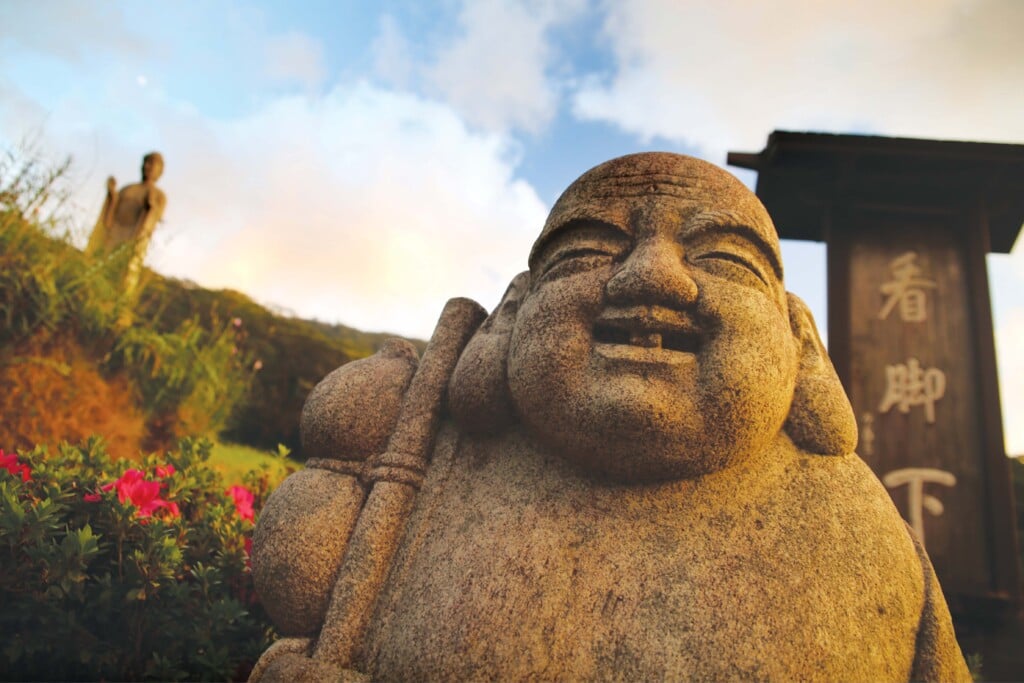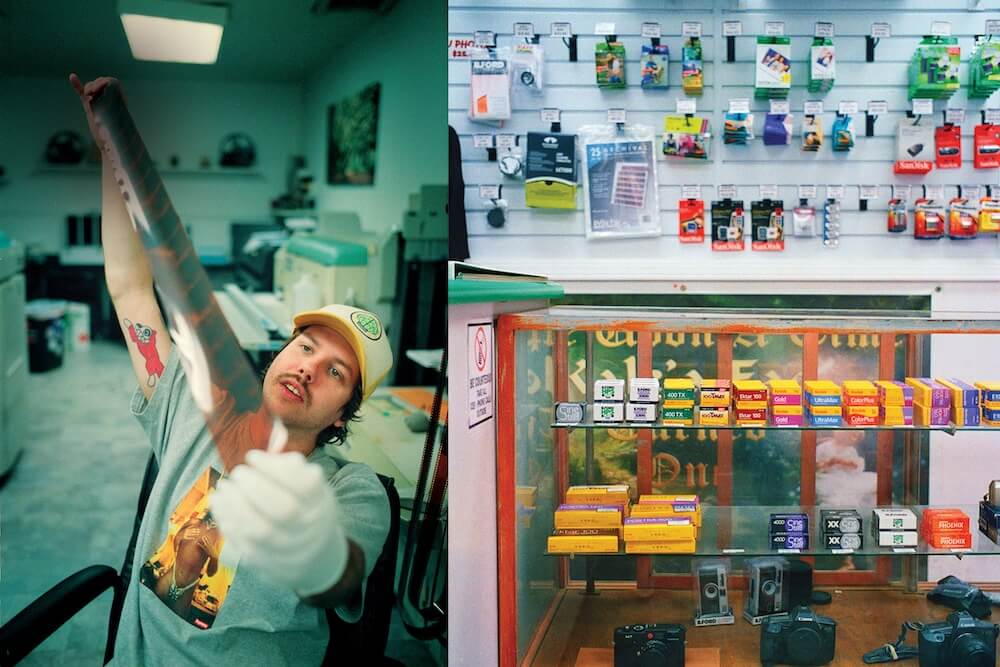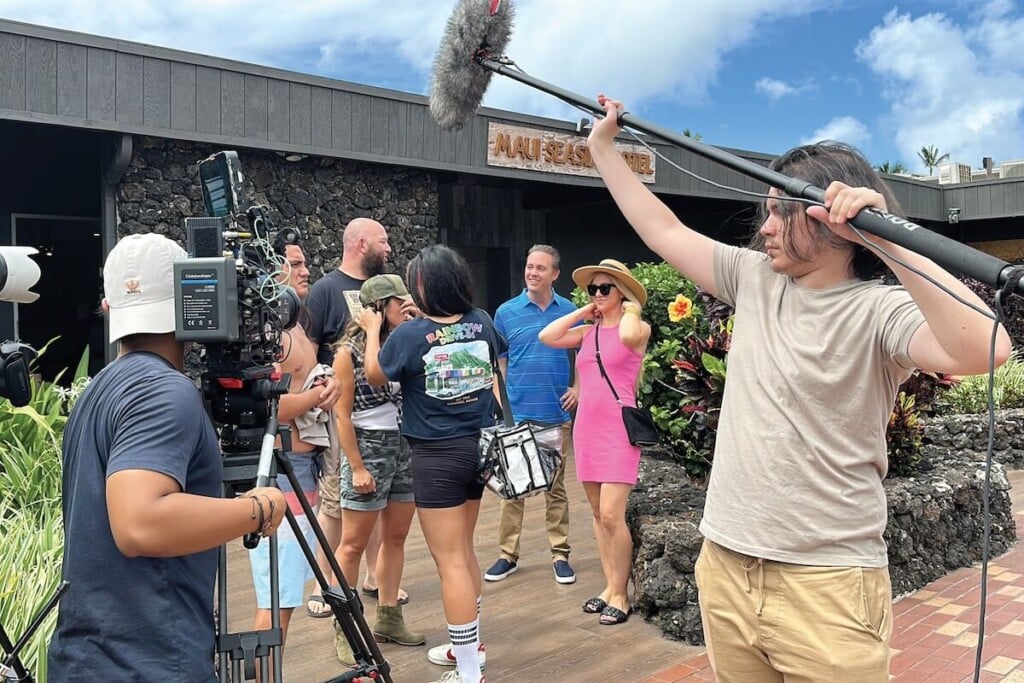Chozen-ji: Where Hawai‘i Leaders Find Courage and Calm
The Zen temple and martial arts dojo in the back of Kalihi Valley has become a sought-after place to practice the art of leadership.

Almost at the end of Kalihi Street, past where it turns into a one-lane road and the rainforest encroaches on the asphalt, is a Zen temple and martial arts dojo called Chozen-ji. The dojo is only 20 minutes from Bishop Street and the state Capitol, but its rustic, Japanese-style buildings, carefully maintained grounds and old-school training methods can make it feel a world apart.
Since the temple’s establishment in Kalihi Valley in 1976, a diverse cross-section of the community has come with regularity and dedication, including former Gov. John Waihe‘e and former House Speaker Calvin Say, and business leaders such as Colbert Matsumoto, Lionel Tokioka and Richard Lim.
Above CEO Ann Teranishi’s desk at American Savings Bank sit two pieces of Zen calligraphy from Chozen-ji, where she has trained in meditation. One is an enso, or circle, evocative of a simultaneous sense of totality and emptiness, everything and nothing. The other is the kanji shin, meaning mindheart or spirit.
When Teranishi first came to Chozen-ji, she had just been asked to lead ASB; she found the strict kind of zazen, or seated meditation, taught there to be useful in preparing her for the new role. Like other students at the dojo, she learned to sit for 45 minutes at a time with her eyes open and without moving. If a mosquito landed on her nose or her legs began to hurt, she was told to resist the temptation to move.
“There are so many parts of being in an executive leadership role where there’s always a lot going on, a lot demanded of your time, energy and thoughts,” Teranishi says. “Sitting quietly in zazen was one of the most difficult things I’ve done from a discipline standpoint. Just sitting and trying … to settle my thoughts and then pulling on certain threads that I didn’t realize were important until I’d quieted my mind.”
Building Courage
Chozen-ji, founded by Tanouye Tenshin, a local band teacher and accomplished martial artist, employs various martial arts and fine arts to aid students’ self-development. Gaining courage, or fearlessness, is an important outcome of the training.
After training for three years in zazen, calligraphy and kendo at Chozen-ji, Seth Colby, head economist at the state Department of Taxation, says he’s developed the ability to stay more aware and calm in tough situations. He says this proved useful when Gov. Josh Green asked him, unexpectedly, to answer questions about the state’s historic income tax cuts at a bill signing this year.
“I’ve trained at the dojo getting rattled so many times, I know how to stay calm and collected, able to perceive opportunities in ways that, when other people are overwhelmed, I’m flowing through it.”
One Chozen-ji teacher, Michael Kangen, says the training inoculates people against certain kinds of chaos and stress, and that a big part of the reason it works is the physicality of it all.
“It’s not conceptual,” HPM Building Supply Chairman and CEO Jason Fujimoto says. “You can’t just talk about it over and over, as if it’s an academic lecture.”
Like Teranishi, Fujimoto began practicing zazen while transitioning into his company’s top role.
“The other thing that was happening at that time at HPM was an evolution that had actually begun 10 years prior with the company’s change to being 100% employee-owned.” Fujimoto felt strongly that what had begun as organizational change had to extend into cultural change.
“How can we step into everyone being an owner-employee-leader?” he remembers asking himself. “Regardless of title or position, everyone can lead. That really starts with being able to lead yourself.”
In 2018, Fujimoto brought his 19-person executive leadership team to Chozen-ji for a weekend of strategic discussions and Zen training – including zazen, karate, calligraphy, manual labor and kendo. Fujimoto says that what they learned has shaped the growth of the company, and he now teaches his own class on “conscious leadership,” open to all HPM employees.
Groups Often Meet There
Many Chozen-ji students are encouraged to use the temple grounds and their training to help shape the future of Hawai‘i. The O‘ahu Economic Development Board, Holomua Collective, Kupu and Eddie Kamae Songbook Project have all held gatherings and strategic planning at Chozen-ji.
Chozen-ji has frequently hosted other important discussions as well. On the wall of Chozen-ji’s kitchen hangs a framed fax of a Washington Post article sent from then-U.S. Sen. Daniel Inouye’s office describing the passage of the Aloha Spirit Law in 1986. Kangen Roshi explains that Chozen-ji members led the campaign for the law. Nearby are several low tables where he also says founder Tanouye mediated negotiations between developers and the community around building the resorts at Ko Olina.
More recently, those same low tables were the setting for another community discussion, this one about the future of Pu‘uhonua O Wai‘anae, an encampment of houseless people next to the Wai‘anae Boat Harbor. Those efforts, in which Kangen Roshi and other dojo members were involved, helped prevent a sweep of the village and later grew into a unique development led and managed by Pu‘uhonua residents.
Teranishi says Chozen-ji’s strict and traditional training in meditation, martial arts and fine arts can lead to extraordinary creativity.
“Just being there requires a certain amount of courage, to try something I’ve never done before and am not familiar with. Some people would say, ‘Oh, I can’t believe you’re doing that. There are so many rules.’ But that actually requires me to be more flexible than I’ve ever been.”
Students learn to feel comfortable even in unfamiliar terrain, whether it’s by firing the wood-fired ceramics kiln over several days, confronting personal habits through the unfamiliar action of swinging a sword, or getting scolded for simply leaving one’s slippers the wrong way.
“It trains you to be OK with taking risks,” Chozen-ji teacher Kangen explains, “and also to dig deeper than you normally ever would. It’s a high intensity but low stakes environment that prepares you for the high intensity, high stakes moments in life.”
Teranishi encourages those interested in exploring Zen training at Chozen-ji to give it a try. (Sign up for Chozen-ji’s beginners classes at www.chozen-ji.org.)
“I say you can do it, and you’ll find yourself … putting your ego aside and being willing to be a beginner. We don’t do that enough as adults,” she says.
“People may think of courage as a leader being the courage to lead, but it’s really the courage to do new things, even if they scare you. The stillness and presence will be the things to help guide you.”








